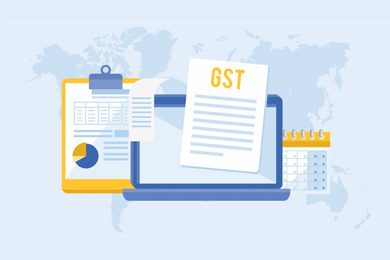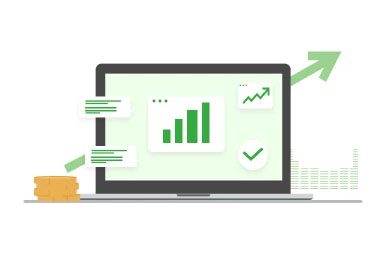



 Tech & IT
Tech & IT
 Business
Business
 Coding & Developer
Coding & Developer
 Finance & Accounting
Finance & Accounting
 Academics
Academics
 Office Applications
Office Applications
 Art & Design
Art & Design
 Marketing
Marketing
 Health & Wellness
Health & Wellness
 Sounds & Music
Sounds & Music
 Lifestyle
Lifestyle
 Photography
Photography
More Learnfly
Business Solution Become an InstructorAccounting involves systematically recording, analyzing, and interpreting financial transactions. It provides insights into a business's financial health, aiding decision-making, regulatory compliance, and the communication of financial information to stakeholders.
.jpg)
By : Zenith Academics
Learn Fundamentals of Finance and Credit Management for Bankers and Financial Analyst...
4.1 1356
5:17:26 hrs 55 lectures All Level

By : Zenith Academics
Ideal for CAIIB/CA/CS/CMA/CFA/MBA & Commerce Students and Practioners in Finance. Sui...
4 1274
3:53:21 hrs 39 lectures All Level

By : Veer Tutorial
Learn Tally Step by step real world practical examples of different businesses from 2...
4 1457
6:44:45 hrs 71 lectures Expert Level

By : Biz Facility
Financial Statements are vital to understand the management of your business...
4.3 862
5 lectures Beginner Level

By : Urs Ravi I Vedanta Educational Academy
A Compulsion Course for Accounting, Financial, MIS, Data Analysis, Tax Professional, ...
4.1 8987
24:49:34 hrs 275 lectures All Level

By : Daniel Alexandru Petrescu
How much will we have tomorrow...
4.8 9042
1:18:42 hrs 8 lectures Expert Level

By : Daniel Alexandru Petrescu
When your P/L shows something but your bank account disagrees...
4.7 8924
1:4:25 hrs 8 lectures Intermedite Level

By : Accounting is a piece of cake VRN
Income and expenses tracking...
4.6 54367
9 lectures All Level












Learn more topics in various categories at one place. Explore unlimited courses in other categories and up-skill yourself today.

 Jazeb Akram
Jazeb Akram 4.2 771159 Beginner Level

 John Hedengren
John Hedengren 4.1 569062 All Level

 Ranjan Pandey
Ranjan Pandey 4.1 346728 All Level

 Muhammad Ahsan Pervaiz
Muhammad Ahsan Pervaiz 4.2 101337 All Level

 Pieter Vliegenthart
Pieter Vliegenthart 4.6 100916 All Level

 Jerome P.
Jerome P. 4.8 100881 All Level

 Senol Atac
Senol Atac 4.9 100091 All Level

 Vikas Munjal
Vikas Munjal 4.8 100065 Beginner Level

 Avinash A
Avinash A 4.8 100013 All Level

 Biz Facility
Biz Facility 6 Lectures All Level

 Biz Facility
Biz Facility 6 Lectures All Level

 Biz Facility
Biz Facility 5 Lectures All Level

 Biz Facility
Biz Facility 4 Lectures All Level

 Biz Facility
Biz Facility 4 Lectures All Level

 Biz Facility
Biz Facility 6 Lectures All Level
.jpg)
 Prabh Kirpa Classes
Prabh Kirpa Classes8 Lectures All Level

 AWESOME EMMANUEL
AWESOME EMMANUEL57 Lectures All Level

 AWESOME EMMANUEL
AWESOME EMMANUEL42 Lectures All Level
.jpg)
 Piyush Arora, CFA, CAIA
Piyush Arora, CFA, CAIA16 Lectures All Level

 LEMMY FRANCISCO KAWONGA
LEMMY FRANCISCO KAWONGA 46 Lectures All Level

 LEMMY FRANCISCO KAWONGA
LEMMY FRANCISCO KAWONGA 16 Lectures All Level
.png)
 CA Kuldeep Sharma
CA Kuldeep Sharma32 Lectures All Level
.jpg)
 Kiran Beldar
Kiran Beldar8 Lectures All Level
.jpg)
 Kiran Beldar
Kiran Beldar8 Lectures All Level
.jpg)
 Kiran Beldar
Kiran Beldar8 Lectures All Level
.jpg)
 SONU THOMAS
SONU THOMAS26 Lectures All Level
.jpg)
 SONU THOMAS
SONU THOMAS10 Lectures All Level
.png)
 CA Kuldeep Sharma
CA Kuldeep Sharma16 Lectures All Level
.jpg)
 Zenith Academics
Zenith Academics55 Lectures All Level

 Zenith Academics
Zenith Academics18 Lectures All Level

 Zenith Academics
Zenith Academics39 Lectures All Level

 Veer Tutorial
Veer Tutorial71 Lectures All Level

 Graziano Giuseppe Di Capua
Graziano Giuseppe Di Capua27 Lectures All Level

 Victor Ogundele
Victor Ogundele81 Lectures All Level

 Biz Facility
Biz Facility 5 Lectures All Level
 (4).jpg)
 Biswaroop Sen Sen
Biswaroop Sen Sen27 Lectures All Level

 Steve Liguori
Steve Liguori19 Lectures All Level
.jpg)
 Greg Henriques
Greg Henriques15 Lectures All Level
.jpg)
 Shalom Martin
Shalom Martin19 Lectures All Level
.jpg)
 Shalom Martin
Shalom Martin11 Lectures All Level

 Urs Ravi I Vedanta Educational Academy
Urs Ravi I Vedanta Educational Academy275 Lectures All Level

 Daniel Alexandru Petrescu
Daniel Alexandru Petrescu8 Lectures All Level

 Daniel Alexandru Petrescu
Daniel Alexandru Petrescu8 Lectures All Level

 David Johnson
David Johnson20 Lectures All Level

 Daniel Alexandru Petrescu
Daniel Alexandru Petrescu8 Lectures All Level

 Daniel Alexandru Petrescu
Daniel Alexandru Petrescu9 Lectures All Level

 Daniel Alexandru Petrescu
Daniel Alexandru Petrescu8 Lectures All Level

 Daniel Alexandru Petrescu
Daniel Alexandru Petrescu10 Lectures All Level

 Daniel Alexandru Petrescu
Daniel Alexandru Petrescu12 Lectures All Level

 Daniel Alexandru Petrescu
Daniel Alexandru Petrescu9 Lectures All Level
 (1).jpg)
 Daniel Alexandru Petrescu
Daniel Alexandru Petrescu9 Lectures All Level

 Daksh Murkute
Daksh Murkute19 Lectures All Level

 Dobromir Dikov FCCA, FMVA
Dobromir Dikov FCCA, FMVA55 Lectures All Level

 Chester Sky
Chester Sky14 Lectures All Level

 Humberto Malaspina
Humberto Malaspina47 Lectures All Level

 Accounting is a piece of cake VRN
Accounting is a piece of cake VRN9 Lectures All Level

 Steve Liguori
Steve Liguori10 Lectures All Level

 Steve Liguori
Steve Liguori14 Lectures All Level

 Tawanda Irvine Makoni
Tawanda Irvine Makoni10 Lectures All Level

 Tawanda Irvine Makoni
Tawanda Irvine Makoni18 Lectures All Level

 Atif Noor
Atif Noor12 Lectures All Level

 Anurag Singal
Anurag Singal17 Lectures All Level

 Ross Maynard
Ross Maynard12 Lectures All Level

 Anurag Singal
Anurag Singal23 Lectures All Level

 Blair Cook
Blair Cook10 Lectures All Level

 Blair Cook
Blair Cook5 Lectures All Level

 Blair Cook
Blair Cook5 Lectures All Level

 Blair Cook
Blair Cook7 Lectures All Level

 Blair Cook
Blair Cook7 Lectures All Level

 Blair Cook
Blair Cook8 Lectures All Level

 Blair Cook
Blair Cook28 Lectures All Level

 Blair Cook
Blair Cook8 Lectures All Level

 Blair Cook
Blair Cook7 Lectures All Level

 CA N Raja Natarajan
CA N Raja Natarajan25 Lectures All Level

 Manish Gupta
Manish Gupta34 Lectures All Level

 Quantic Statistics R spatial analysis
Quantic Statistics R spatial analysis13 Lectures All Level

 Ashwini Bissa
Ashwini Bissa14 Lectures All Level
Accounting is the process of systematically recording, summarizing, and analyzing financial transactions of a business or organization. It involves preparing financial statements, interpreting financial data, and ensuring compliance with relevant accounting standards.
Accounting is essential for businesses to track their financial performance, make informed decisions, and comply with legal and regulatory requirements. It provides stakeholders, such as investors and creditors, with a clear picture of a company's financial health.
Basic accounting principles include the accrual basis (recording transactions when they occur, not when cash changes hands), the matching principle (matching expenses with revenues), and the principle of conservatism (prudent recognition of losses).
Financial statements are reports that provide a snapshot of a company's financial position and performance. The main statements are the balance sheet (assets, liabilities, equity), income statement (revenues, expenses, profit), and cash flow statement (cash inflows and outflows).
Technology has transformed accounting through the use of accounting software, automation, and cloud computing. These advancements streamline bookkeeping processes, improve accuracy, and provide real-time access to financial data, enhancing efficiency in financial management.





